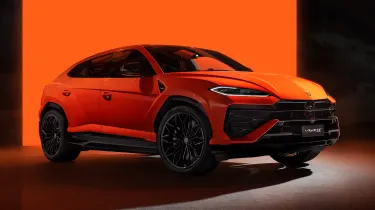
Lamborghini has confirmed that it’s working on a second-generation Urus that will be designed and developed in the mould of the incredibly popular current generation. The new model is due to arrive some time after 2026, and the company has revealed what to expect of it.
When asked about whether a new combustion-engined SUV is on the cards before the 2035 ICE ban in Europe, Lamborghini’s chief marketing and sales officer Federico Foschini told Auto Express “We’re 10 years away from 2035, which is the year we should switch, but we can’t stay 10 years with the same car.”
Despite Ferrari and Aston Martin since arriving with their own bespoke SUV architectures, Lamborghini will continue to utilise technology shared with the wider VW Group in the next Urus. That’s likely to include a similar high-performance V8 hybrid powertrain to that in the recently introduced Urus SE.
Federico Foschini said to Auto Express, “We would be stupid not to keep using something that’s at the top of its technology. For us, it’s an advantage until the moment that we are not able to make a car that’s at the top of its game.”
Porsche has already confirmed that it is working on a heavy update for its combustion-powered SUV platform for a new generation of Cayenne after the slow take-up of full EVs forced its hand to continue offering petrol-powered models.
Porsche’s CEO Oliver Bloom said in a recent statement, “The third generation of the Cayenne will be further upgraded and will continue to be offered alongside the all-electric generation up to and beyond 2030”, suggesting that considerable work is being done behind the scenes to keep these models competitive.
When it arrives some time after 2026, the new hybrid-powered Urus will join both the Revuelto and Temerario supercars in a three-pronged Lamborghini line-up, all with hybrid-assisted combustion engines. After that point, the company will finally introduce the all-electric Lanzadore GT towards the end of the decade.
However, in the short term, Lamborghini won’t introduce an all-electric SUV on any of VW’s future pure-EV platforms, because it wishes to keep the distinction of different models coming with different engines.
Given that raw numbers are not the focus when it comes to Lamborghini’s electrification strategy, the company’s EVs instead have to offer a unique experience – and it doesn’t see that coming on an electric SUV in the immediate future.
